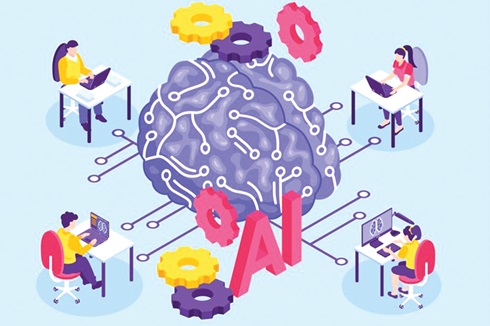
AI in our universities: A tool for creativity or a shortcut to laziness?
Artificial Intelligence (AI) is no longer a distant idea. From lecture halls in Ghana to campuses across the globe, tools like ChatGPT are rewriting the way students and lecturers approach higher education. But with its rise comes a pressing question: is AI enhancing creativity in our universities—or quietly eroding it?
A generational divide
For many students, especially members of Generation Z, AI feels like a natural extension of their digital world. Asking ChatGPT for guidance is no different from turning to Google—only faster. But for lecturers and administrators who grew up in an era of long library hours, painstaking note-taking, and original essay writing, AI represents something more troubling: the outsourcing of thought.
This divide is not confined to the West. In Ghana, too, classrooms are split. Students see AI as a shortcut to efficiency, while many lecturers remain wary, torn between banning, regulating, or embracing the technology.
The global south challenge
AI’s impact also exposes sharp inequalities between the Global North and South. In Europe and North America, some universities now offer free institutional access to AI platforms, citing equity and inclusion. In Ghana, however, the reality is far more complex. Unreliable internet, high data costs, and limited digital infrastructure mean AI could deepen the gap between those who can afford these tools and those who cannot.
A student with a stable connection and a subscription may finish assignments in half the time. Their peers, meanwhile, struggle not just with coursework but with the digital divide itself. Without deliberate action from universities and policymakers, AI could reinforce existing educational inequities.
Ethics and the “coded gaze”
Beyond access, ethical concerns loom large. Joy Buolamwini, a Canadian-American computer scientist and founder of the Algorithmic Justice League, has famously shown how AI systems fail to recognize Black faces accurately. She described this bias as the “coded gaze,” highlighting how algorithms can mirror societal prejudices.
For Ghana, this raises critical questions: if AI systems are trained mostly on Western datasets, how well can they reflect African voices, cultures, or learning needs? Without local participation in AI design, Ghana risks becoming a passive consumer of technologies that misrepresent—or even ignore—its realities.
Opportunities and risks
Still, AI is not all threat. Properly harnessed, it could transform education in Ghana. Imagine AI translating complex academic texts into local languages, supporting research with instant summaries, or giving lecturers new tools for lesson planning.
But the dangers remain. Over-reliance on AI could dull critical thinking skills, encourage plagiarism, and foster blind trust in machine-made answers. The nightmare scenario? A generation of graduates who rely on AI not just to assist their thinking, but to do it for them.
A way forward
Experts suggest three urgent steps for Ghana’s universities:
1. Open Dialogue – Universities must host forums where students, lecturers, and policymakers openly debate AI’s role.
2. AI Literacy – Just as research skills are taught, AI literacy must become part of the curriculum, highlighting both the strengths and the biases of these tools.
3. Local Innovation – Ghanaian researchers must help shape AI tools that reflect African realities, ensuring the country is not just a consumer but a contributor in this new digital age.
The bottom line
AI is here to stay. The question is no longer whether Ghana should embrace it, but how. Used responsibly, it could democratize access to knowledge, support creativity, and level the playing field. Used recklessly, it risks undermining the very foundation of higher learning.
The challenge before us is clear: ensure that AI becomes a partner in education, not a substitute for human creativity and critical thought.
